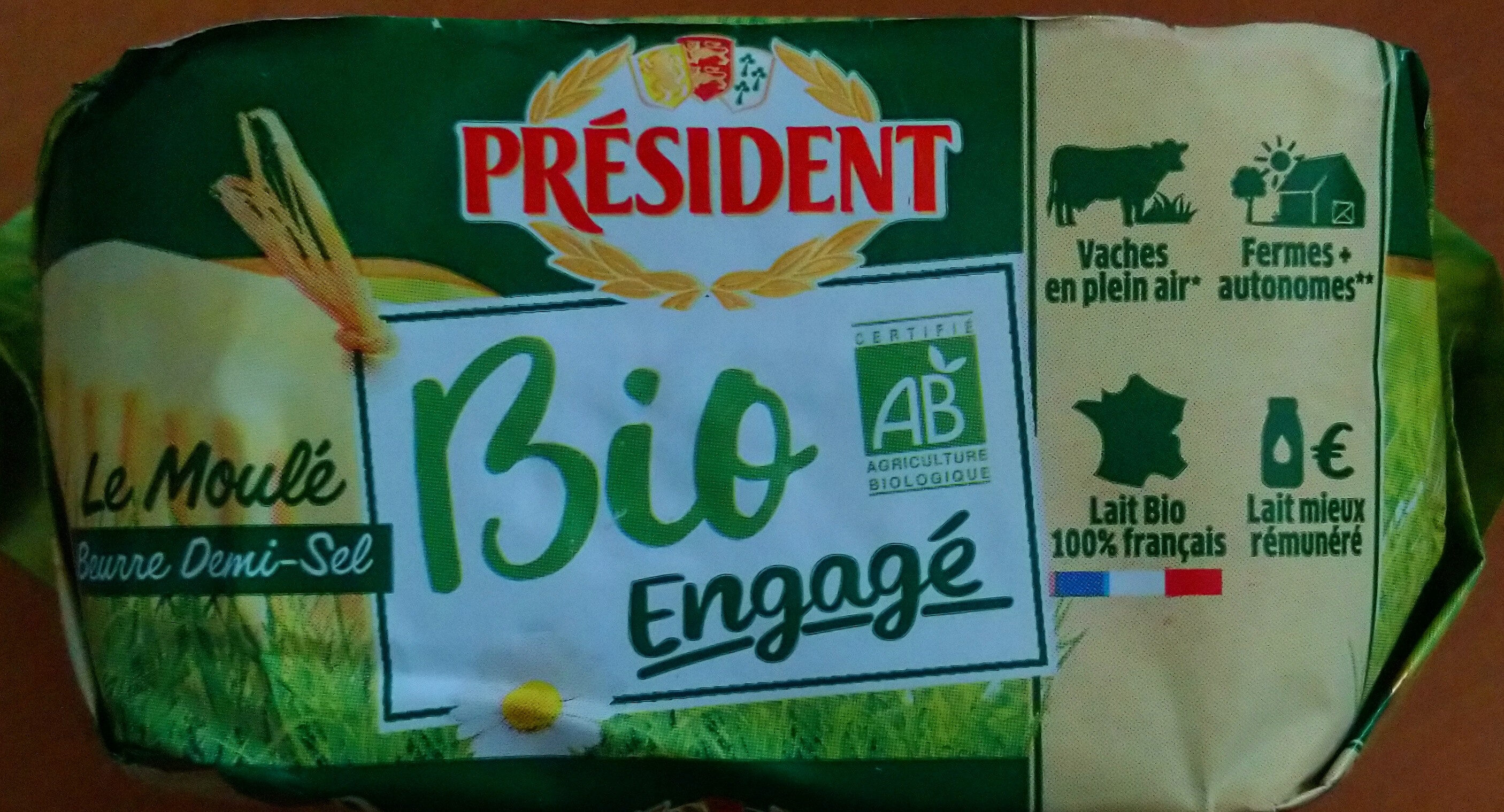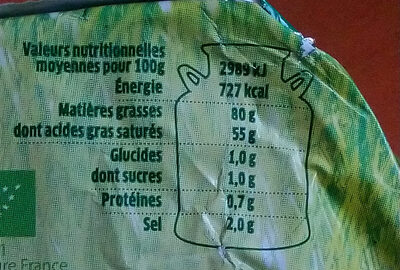Le moulé Bio Engagé Demi-sel - Président - 250g
This product page is not complete. You can help to complete it by editing it and adding more data from the photos we have, or by taking more photos using the app for Android or iPhone/iPad. Thank you!
×
Barcode: 3155251207559 (EAN / EAN-13)
Quantity: 250g
Packaging: fr:Feuille plastique
Brands: Président
Categories: Dairies, Fats, Spreads, Spreadable fats, Animal fats, Milkfat, Dairy spread, Butters, Butter fat, Half-salted butter
Labels, certifications, awards:
Organic, EU Organic, French milk, AB Agriculture Biologique

Traceability code: FR 35.239.005 CE - Retiers (Ille-et-Vilaine, France)
Stores: Magasins U
Countries where sold: France
Matching with your preferences
Environment
Carbon footprint
Packaging
Transportation
Labels
Report a problem
Data sources
Product added on by kiliweb
Last edit of product page on by packbot.
Product page also edited by ecoscore-impact-estimator, magasins-u, moon-rabbit, openfoodfacts-contributors, pauline30, yann-l, yuka.SGE0Y1A3a2crdEJheHZBU3hqL1ozY3BGN2NhcGZIS3JFODB0SVE9PQ, yuka.U0twZEZyazZwOFVKdjhBbHp3TGN4Yzk0eUlUeFlGcVBjZVJNSVE9PQ, yuka.YVBnYUs2WWR0cWhWZ01ZZDBTM3IrT3B6eEozekFIbTBBZGhCSVE9PQ, yuka.ZG90UUM0TUZncUV6Z2RnbTJEcnIwOTVJbHBhRUFrZnVFTzRlSVE9PQ.












